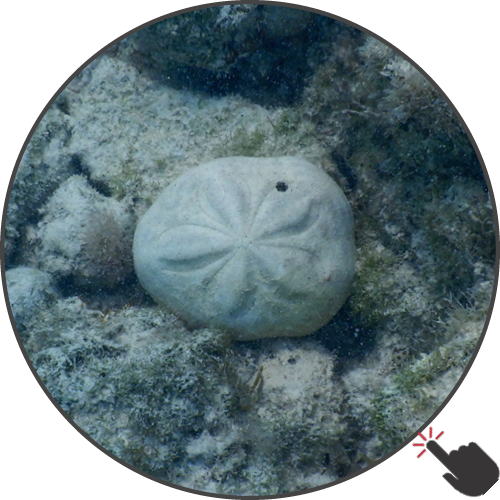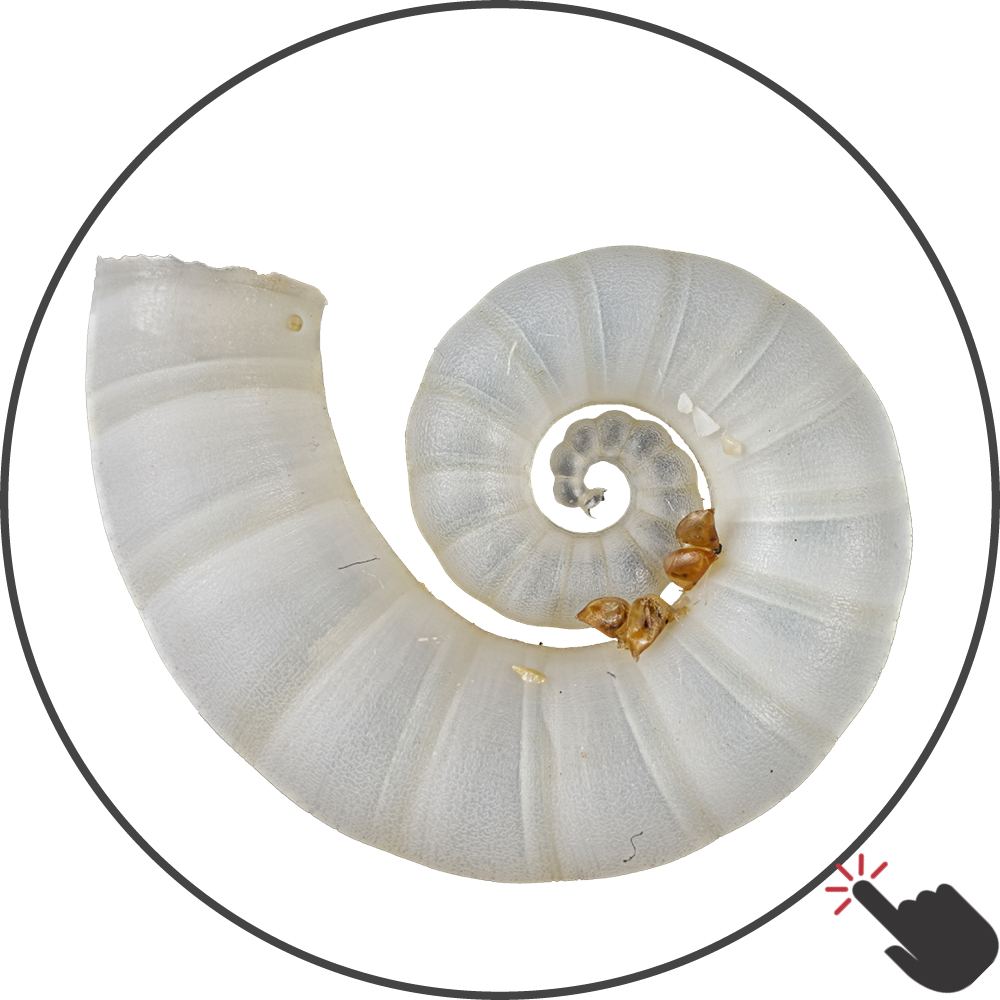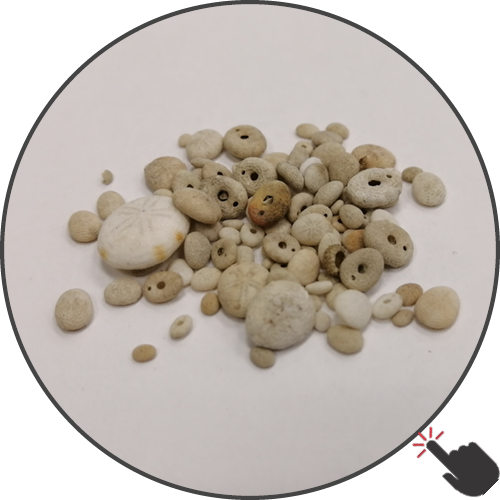German Research Foundation Project GR5464/1
Recognition and interpretation of predatory traces in echinoid skeletons: towards the evolution of predator-prey systems in ecologically important echinoid taxa.
This project focuses on echinoids which experience numerous biotic pressures such as drilling predation by gastropods, crushing predators by crabs, fish, and birds, as well as asteroids and other echinoids. These biotic interactions can affect local echinoid populations and impede important ecosystem services that echinoids provide as grazers, detritus feeders, and bioturbators. In particular, irregular echinoid taxa (clypeasteroids and spatangoids) – which live under the sediment surface – possess a central functional position in many shallow-water carbonate habitats. These echinoids burrow through the sediments and mix up surface sediments. That facilitate sediment oxygenation hence making substrates more habitable to diverse benthic organisms.
Previous research has shown that predation pressure by drilling gastropods on the clypeasteroids is a major factor in echinoid population control and echinoids serve as a major food source for those gastropods. Research conducted in the Bahamian Island San Salvador indicated that drilling predation account for a high fraction of echinoid mortality. Despite their obvious ecological importance in shallow-water habitats, infaunal echinoids are rarely investigated in terms of predator-prey relationships compared to e.g. bivalves.
Evolutionary implications can be extracted from predatory traces recorded in the echinoid skeletons. Especially from those skeletons of the strongly reinforced clypeasteroids which possess a high preservation potential and are often found throughout Cenozoic specimens. These traces of predatory activity can be used for quantifying various aspects of predator-prey interactions in modern environments and the fossil sedimentary record of echinoids which offer a deeper understanding of evolutionary history of biotic interactions in these important taxa.


